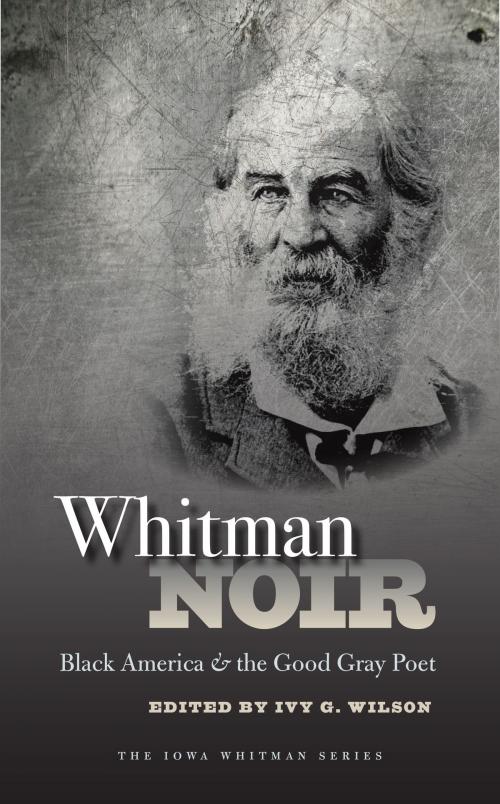Whitman Noir
Black America and the Good Gray Poet
Fiction & Literature, Literary Theory & Criticism, Black, American| Author: | Ivy Wilson | ISBN: | 9781609382629 |
| Publisher: | University of Iowa Press | Publication: | May 1, 2014 |
| Imprint: | University Of Iowa Press | Language: | English |
| Author: | Ivy Wilson |
| ISBN: | 9781609382629 |
| Publisher: | University of Iowa Press |
| Publication: | May 1, 2014 |
| Imprint: | University Of Iowa Press |
| Language: | English |
Walt Whitman’s now-famous maxim about “containing the multitudes” has often been understood as a metaphor for the democratizing impulses of the young American nation. But did these impulses extend across the color line? Early in his career, especially in the manuscripts leading up to the first edition of Leaves of Grass, the poet espoused a rather progressive outlook on race relations within the United States. However, as time passed, he steered away from issues of race and blackness altogether. These changing depictions and representations of African Americans in the poetic space of Leaves of Grass and Whitman’s other writings complicate his attempts to fully contain all of America’s subject-citizens within the national imaginary. As alluring as “containing the multitudes” might prove to be, African American poets and writers have been equally vexed by and attracted to Whitman’s acknowledgment of the promise and contradictions of the United States and their place within it.
Whitman Noir: Black America and the Good Gray Poet explores the meaning of blacks and blackness in Whitman’s imagination and, equally significant, also illuminates the aura of Whitman in African American letters from Langston Hughes to June Jordan, Margaret Walker to Yusef Komunyakaa. The essays, which feature academic scholars and poets alike, address questions of literary history, the textual interplay between author and narrator, and race and poetic influence. The volume as a whole reveals the mutual engagement with a matrix of shared ideas, contradictions, and languages to expose how Whitman influenced African American literary production as well as how African American Studies brings to bear new questions and concerns for evaluating Whitman.
Walt Whitman’s now-famous maxim about “containing the multitudes” has often been understood as a metaphor for the democratizing impulses of the young American nation. But did these impulses extend across the color line? Early in his career, especially in the manuscripts leading up to the first edition of Leaves of Grass, the poet espoused a rather progressive outlook on race relations within the United States. However, as time passed, he steered away from issues of race and blackness altogether. These changing depictions and representations of African Americans in the poetic space of Leaves of Grass and Whitman’s other writings complicate his attempts to fully contain all of America’s subject-citizens within the national imaginary. As alluring as “containing the multitudes” might prove to be, African American poets and writers have been equally vexed by and attracted to Whitman’s acknowledgment of the promise and contradictions of the United States and their place within it.
Whitman Noir: Black America and the Good Gray Poet explores the meaning of blacks and blackness in Whitman’s imagination and, equally significant, also illuminates the aura of Whitman in African American letters from Langston Hughes to June Jordan, Margaret Walker to Yusef Komunyakaa. The essays, which feature academic scholars and poets alike, address questions of literary history, the textual interplay between author and narrator, and race and poetic influence. The volume as a whole reveals the mutual engagement with a matrix of shared ideas, contradictions, and languages to expose how Whitman influenced African American literary production as well as how African American Studies brings to bear new questions and concerns for evaluating Whitman.















